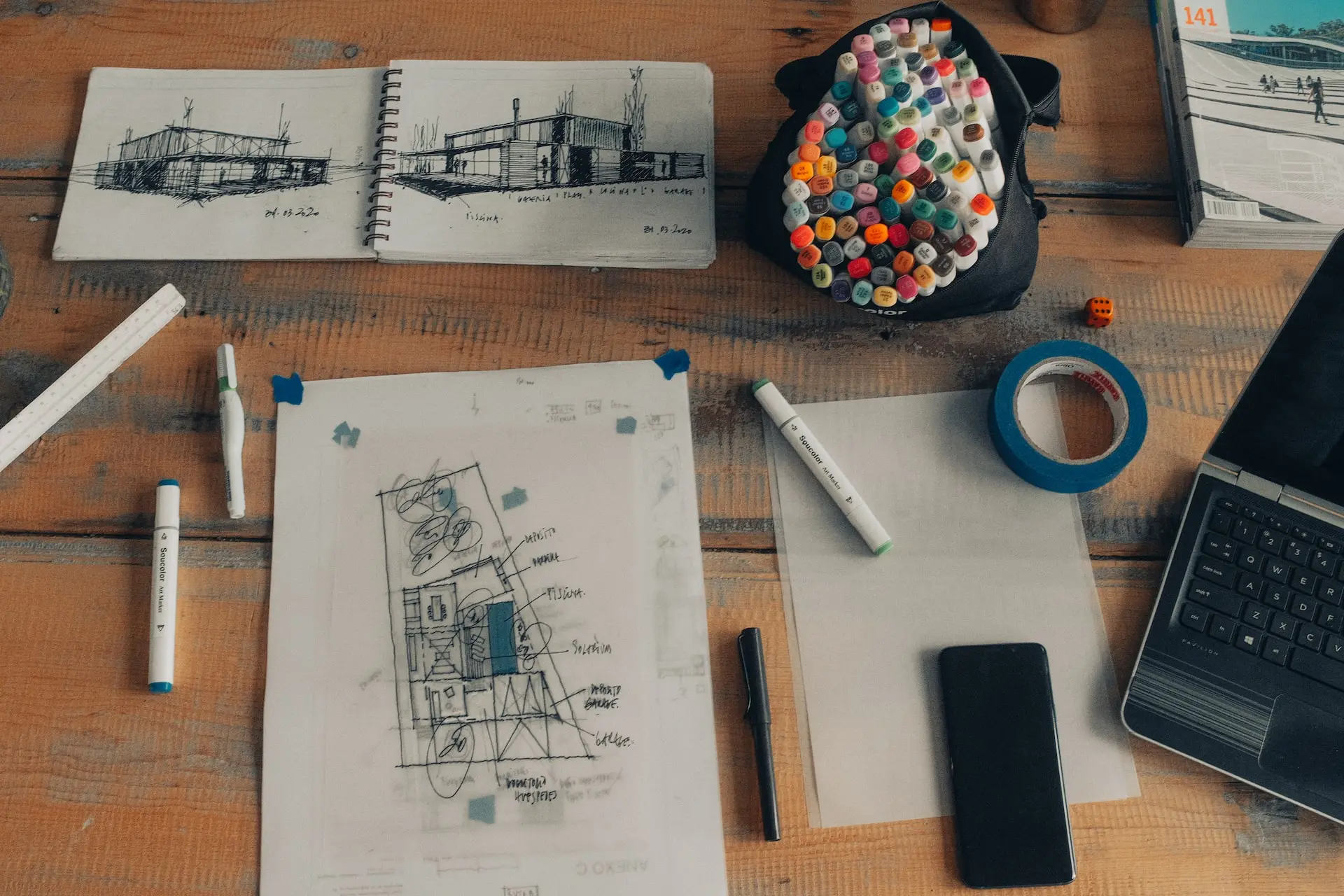When you get into a website project, you can often get overwhelmed with technical “jargon” that confuse you even more than before. I think that it is not always helpful to use only technical terms, because the key to a successful website project is clear communication.
Here I have summarized 8 terms that you can actually explain with everyday examples.
If you plan to have your own place on the Internet, you will come into contact with the concept of hosting and servers. This is similar to renting a property. For a monthly fee, you will get a place to put your stuff and in case of certain problems, you can contact the hosting company (the landlord), which will take care of them. A server is in itself a just computer that stores your website and is always on, so your website is also always online.
Now that you have a place that belongs to you, you can arrange it the way you like best. Some properties are used as apartments where people live, others as stores where they sell things. The same goes for your website, where you can either use it as a store or just a place to blog and share things that interests you.
Now that you’ve rented your new apartment, you’ll want your family and friends to come visit you. Since your apartment is located in the countryside and is very difficult to find, you send them the exact geographic coordinates (13° 10′ South, 144° 23′ East). That is similar to an IP address (Example: 172.16.254.1.), which is a unique identifying number to find your place on the Internet.

One of your family members has never heard of geographic coordinates and asks for your normal address, since she will find your place somehow. A domain (Example: www.niklas-jesper.com) is a name that makes it easier to remember and is linked to the IP address. With the domain name, you arrive at the same location.
Now that your guests have arrived, you show them your apartment and guide them through the kitchen, living room, bedroom and bathroom. Your website can also be divided into specific sections. For example: a section About You, Contact, Service and Start. These areas (like the rooms) are called webpages and can be set up (decorated) individually.
One of your guests asks you to show him the way to the bathroom. You point down the hall to the last door on the right. With a URL, you have the same function to point to a specific webpage (room). This could look like: www.niklas-jesper.com/about-me.
Difference between the domain and an URL:
“A URL is a complete web address used to find a particular web page. While the domain is the name of the website, a URL will lead to any one of the pages within the website. “
The doorbell rings again, one of the guests is very late because he forgot your address and just googled your name to maybe find the address. It took a long time to find the right address for your name. SEO helps search engines (like Google) to find your domain better if someone is googling just your name or brand.
The same person also complained that it is way too difficult to see the house number from the street and that the steps of the stairs are much too high to get to the entrance. Similar to housing, websites should be accessible to people with disabilities. Therefore, text should be easy to read and buttons should be easy to click.
As I mentioned at the beginning, clear communication is always important in website projects and has a higher priority for me than looking smart with technical words. Many words in the jargon sound absurd at first, but are easy to understand if you know the concept behind them.
| Cookie | Duration | Description |
|---|---|---|
| cookielawinfo-checkbox-analytics | 11 months | This cookie is set by GDPR Cookie Consent plugin. The cookie is used to store the user consent for the cookies in the category "Analytics". |
| cookielawinfo-checkbox-functional | 11 months | The cookie is set by GDPR cookie consent to record the user consent for the cookies in the category "Functional". |
| cookielawinfo-checkbox-necessary | 11 months | This cookie is set by GDPR Cookie Consent plugin. The cookies is used to store the user consent for the cookies in the category "Necessary". |
| cookielawinfo-checkbox-others | 11 months | This cookie is set by GDPR Cookie Consent plugin. The cookie is used to store the user consent for the cookies in the category "Other. |
| cookielawinfo-checkbox-performance | 11 months | This cookie is set by GDPR Cookie Consent plugin. The cookie is used to store the user consent for the cookies in the category "Performance". |
| viewed_cookie_policy | 11 months | The cookie is set by the GDPR Cookie Consent plugin and is used to store whether or not user has consented to the use of cookies. It does not store any personal data. |